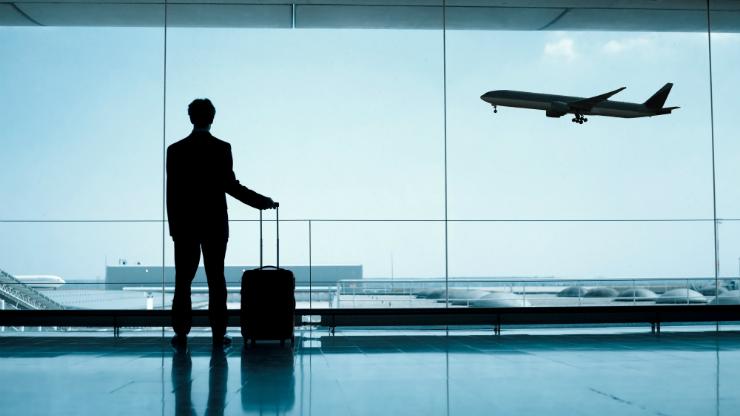How is the no-fly movement impacting business travel?

Flight shaming has become the new travel buzz-word of 2019 with campaigners like thirteen-year-old activist Greta Thunberg urging everyone to take fewer flights. In short, the flight-shaming movement encourages the feeling of being embarrassed or ashamed to take the plane because of the environmental impact.
The movement refers to the fact that flying contributes more than 2% of global carbon emissions and that this number is set to rise. Global passenger numbers almost doubled from 2008 to an estimated 4.37 billion in 2018. And the International Air Transport Association (IATA) estimates that it could almost double again to 8.2 billion passengers by 2037.
In Europe, the flight shaming movement has seen a growing number of business travellers opt for train rides instead of flights. However, although rail travel might be a viable option for European travellers, it is more difficult for South Africans. In Europe, countries are located close together and the rail network is elaborate, whereas in South Africa there are fewer options for eco-conscious travellers to offset their carbon footprint.
But, is stopping flying altogether really the answer? Alexandre de Juniac, Director General and CEO of IATA, certainly doesn’t think so. “Flying is freedom,” he wrote in a blog post. “Confining people’s horizons to train distances or boat speeds back-steps on a century of worldwide progress. Relying on virtual meetings to make global connections ignores the feelings and sensations that make us human.”

Still, the concerns about flight shaming have prompted action all over the world, including in South Africa.
The South African travel industry has come up with an innovative offset mechanism: planting carbon-offsetting spekboom. Launched at the Southern African Tourism Services Association’s (SATSA) annual conference recently, the Spekboom project aims to grow to such a level that tourist flights to and from South Africa will eventually become carbon-neutral.
Spekboom has carbon-offsetting properties and can sequester more than four tonnes of carbon dioxide per year per hectare planted, making it more effective than the Amazon rainforest at removing carbon dioxide from the atmosphere.
Besides planting spekboom in their back yards, there are a number of other things business travellers can do if they want to stay green on the go:
- Fly Smarter. Choose an airline that offers a carbon offset option, and opt for a nonstop flight without layovers to save the fuel for that extra take-off. Lastly, fly economy class. Economy class allows more people, which means fewer emissions per person.
- Pack as light as possible as every extra kilo of luggage weight increases an aircraft’s carbon emissions.
- Travel without paper by using more digital tools and technology for tickets, hotel confirmations and itineraries.
- Choose a hotel with green credentials. Many hotel groups now promote environmental initiatives including solar power, water recycling, energy-efficient lighting, kitchen waste recycling, sustainable furnishings, garden walls to control temperature and organic menus.
- Choose a hotel near your business meeting or event, so you can catch public transport – if available - or walk.
- Be an environmentally responsible guest; re-use towels, turn lights/air-con off when you’re out, take short showers and avoid dry cleaning clothes.
- Pack your own toiletries in reusable containers, BYO toothbrush and a reusable razor. Don’t add to plastic waste by using the throwaway amenity products.
- Travel with a reusable coffee cup, stainless steel straw, reusable drink bottle and a compact reusable shopping bag.
- In restaurants choose local ingredients to reduce food miles, ask about sustainable seafood and order the local wine or beer. You’ll be stimulating the local economy and trying something new at the same time.
- If you need to hire a car, ask the car hire company if they have electric or hybrid vehicles available.
- If you’re taking a gift home, look for locally produced products at markets or support local craftspeople using renewable materials.

As a global travel management company, FCM Travel Solutions places a huge emphasis on how the travel miles of our own people impacts on the environment. It is something we take extremely seriously and this is why we offset all of the carbon emissions of staff travel.
The specially-developed FCM Carbon Footprint Calculator does not only focus on averages but on specific routes and airlines and it accounts for all major GHG (CO2, N2O, CH4) and radiative forcing. This calculator is available to all clients who want to have a better understanding of their corporate travel carbon footprint. Thanks to our links with environmental groups, we can provide our clients with options to offset emissions related to their business travel services.
As part of the Flight Centre Travel Group, FCM is proud to champion social responsibility and greener business travel practices for both our staff and our clients.